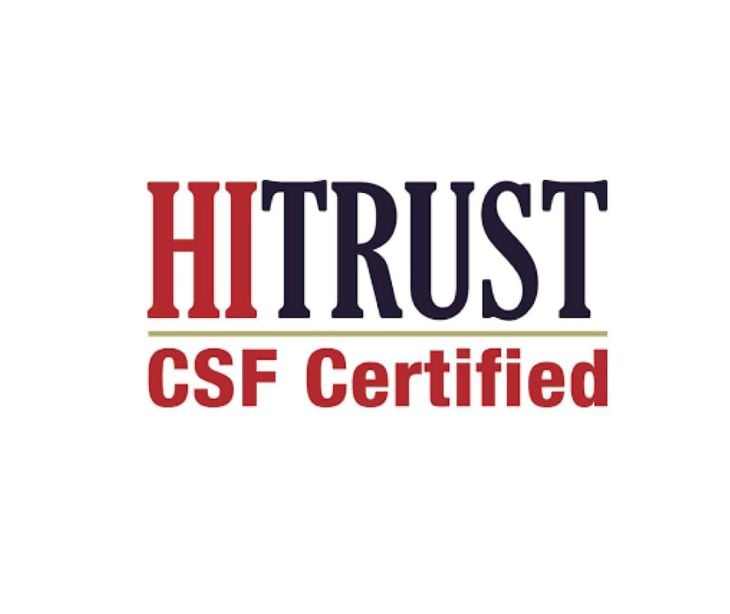
The HITRUST certification enhances data security and supports adherence to legal requirements, including HIPAA. This security framework can reduce financial and legal risk and potentially lower insurance costs.
What is HITRUST?
Health Information Trust Alliance (HITRUST) certification is a comprehensive framework designed to enhance the information security and privacy practices of organizations, particularly in the healthcare industry. It provides a standardized and unified approach for managing security and privacy risks associated with sensitive healthcare data.
The goal of HITRUST certification is to ensure that organizations effectively protect patient health information (PHI) and comply with various regulatory requirements, including the Health Insurance Portability and Accountability Act (HIPAA). Unlike HIPAA, HITRUST is not a law but a voluntary framework that organizations can adopt to manage their security risks more effectively.
Related: Paubox renews HITRUST r2 certification to 2025
HITRUST vs. HIPAA
HITRUST is a framework and certification program that goes beyond HIPAA requirements to provide a more extensive approach to data security and privacy. It is a way for organizations, including healthcare entities, to demonstrate their commitment to safeguarding data.
HIPAA, on the other hand, is a federal law that specifically targets the healthcare industry and sets legal standards for the protection of patient health information.
HITRUST and HIPAA serve different purposes, with HITRUST providing a detailed and flexible approach to data security and privacy management.
Go deeper:
Advantages of a HITRUST certification
While it requires an investment of time and resources, the benefits HITRUST certification provides can be substantial, making it a valuable asset for healthcare organizations.
- Enhanced data security: HITRUST certification promotes data security measures. Healthcare professionals can leverage the framework to protect patient records, intellectual property, and other sensitive data from cyber threats. By implementing HITRUST's security controls, organizations reduce the risk of data breaches and unauthorized access.
- Compliance with regulatory standards: Achieving HITRUST certification ensures compliance with multiple regulations, including HIPAA.
- Competitive advantage: HITRUST certification demonstrates a covered entity's commitment to data security and patient privacy. It sets it apart from competitors and can be a selling point when attracting patients, partners, and investors.
- Reduced insurance premiums: Insurance companies often consider organizations with robust security practices to be lower risks. HITRUST can be a positive factor when negotiating insurance rates.
- Improved reputation: A healthcare organization with HITRUST certification can reassure patients that their information is in safe hands.
- Mitigation of legal and financial risks: Data breaches can result in significant legal and financial consequences. HITRUST certification helps you establish a robust defense against these risks. In the unfortunate event of a data breach, it can be demonstrated that your organization took all necessary precautions to protect sensitive information.
- Streamlined processes: HITRUST provides a framework for consistent and efficient security processes. By aligning your operations with this framework, you can streamline your security procedures, making them more effective and cost-efficient.
- Partner and vendor trust: Healthcare often involves collaboration with various partners and vendors. HITRUST certification ensures that you and your partners are on the same page regarding data security and compliance, reducing potential risks associated with third-party involvement.
Related: HIPAA Compliant Email: The Definitive Guide
How HITRUST affects insurance premiums
HITRUST certification can potentially have an impact on insurance premiums, but it's important to note that the relationship is not straightforward, and the extent can vary.
Here's how HITRUST certification can affect insurance premiums:
- Reduced risk perception: Insurers often view HITRUST-certified organizations as having a lower risk of data breaches and security incidents. This perception can be a factor that leads to more favorable insurance terms, potentially resulting in lower premiums.
- Risk mitigation: Insurers assess the level of risk associated with an organization's operations when determining insurance premiums. HITRUST certification is seen as a proactive risk mitigation measure. It shows that the organization has taken steps to prevent data breaches and protect patient information, which can lead to more competitive premium rates.
- Negotiation leverage: HITRUST certification can provide organizations with negotiation leverage when discussing insurance premiums with insurers.
- Requirement for coverage: In some cases, insurance policies may require organizations to meet certain security and compliance standards, like HITRUST, to secure coverage. Without HITRUST certification, an organization may not be eligible for coverage or may face higher premiums.
- Data breach coverage: HITRUST certification may also impact the cost and terms of data breach insurance coverage.
Watch: HITRUST certified companies can bring down insurance costs
Subscribe to Paubox Weekly
Every Friday we bring you the most important news from Paubox. Our aim is to make you smarter, faster.




